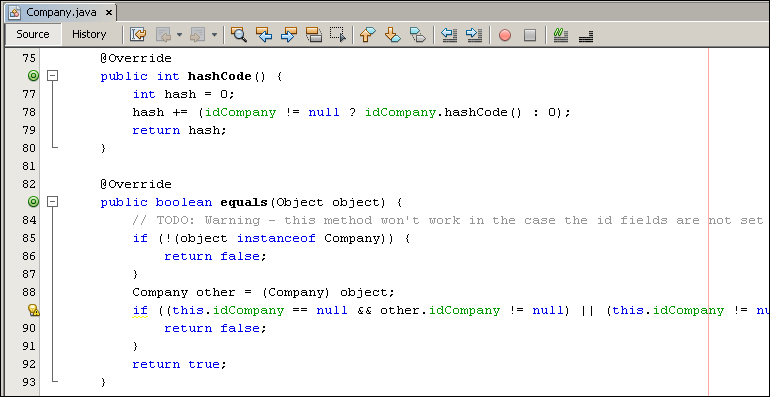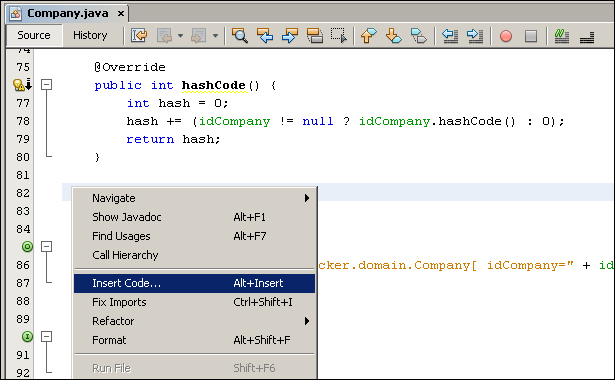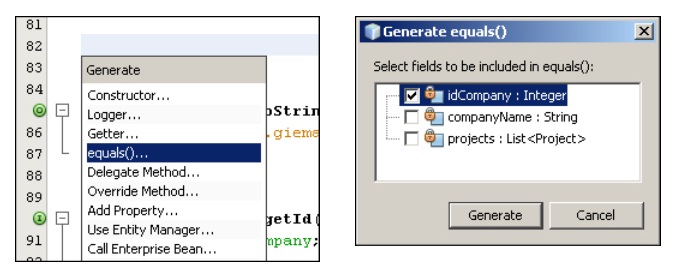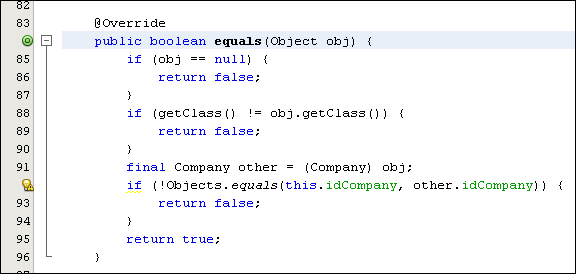Our domain layer entity classes have autogenerated equals and
hashCode methods defined. The Company class, for example, defines these methods as shown:

It is best practice to always provide correctly implemented equals and hashCode methods that use the entity ID to calculate the value that is returned. These methods are used by JPA to determine the equality between entities. Our autogenerated equals method will work correctly with JPA as the ID entity is used in the comparison for each method. However, the //TODO: Warning message on line 83 (see the previous screenshot) indicates an issue that can be avoided if we regenerate the equals method with the NetBeans IDE.
Delete the equals method and right-click on the Company.java file in the editor using the mouse to display the context menu. Select the Insert Code… option:

From the pop-up menu, select the equals()… option and ensure that the idCompany : Integer field is selected in the Generate equals() pop up:

Click on Generate to create the new equals method:

Click on the information icon (circled) over line 92 to display the context information:

Click on The if statement is redundant to clean your code further and replace the if statement with the following line:
return Objects.equals(this.idCompany, other.idCompany);The Objects class was introduced in Java 1.7 and consists of static utility methods for operating on objects. The Objects.equals method takes into account null values and solves the potential //TODO: Warning issue with the autogenerated equals method. From the Java 1.7 JavaDoc for the Objects.equals method:
You can now replace the autogenerated equals method of the Project, Task, User, and TaskLog entity classes in a similar way.
